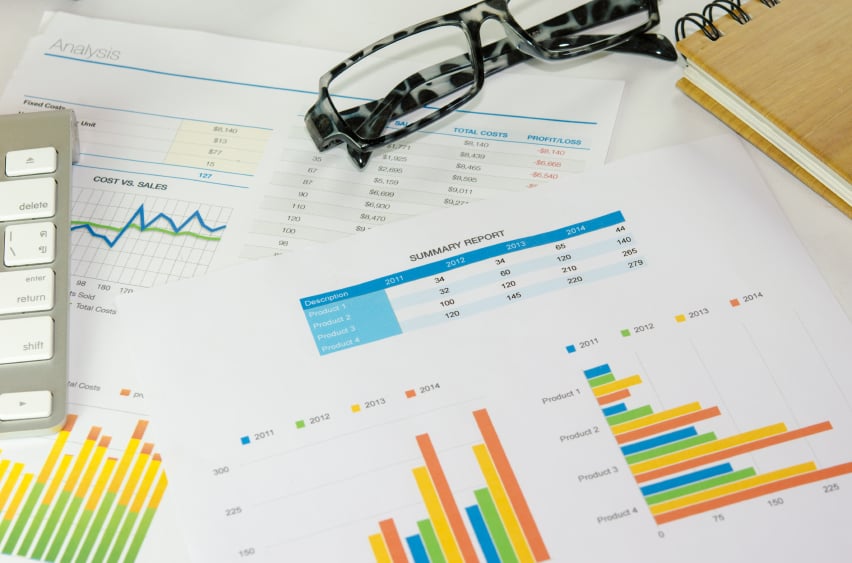What are Capital Gains?
Dec 18, 2022 By Triston Martin
Put another way; a capital gain is any revenue earned via the purchase, ownership, and subsequent sale of capital assets. When most individuals think of capital assets, their houses or stock portfolios come to mind. However, the proper definition of capital assets encompasses a wider range of investments. A capital asset is "virtually everything you possess and utilize for personal reasons, pleasure, business, or investment," according to the Internal Revenue Service's definition.
To answer your question, yes, both your home and your stock portfolio are examples of capital assets. Likewise, collections of coins and stamps, home furniture, jewels, gold, silver, and other precious metals are examples of intangible assets. Properties used for either business or investment purposes might be considered capital assets.
Long-Term Capital Gains
Simply put, long-term capital gains are any earnings realized from selling an asset owned for more than one year. One thing that sets them apart is the advantageous tax rate they get. The Internal Revenue Service levies a 0%, 15%, or 20% tax on gains made over a lengthy period, depending on the tax rate you fall into. Long-term gains are included in a person's taxable income, although they are taxed at a lower rate than regular income. It is in your best interest to wait at least a year before selling any capital assets, provided that doing so does not conflict with your other investing objectives.
Short Term Capital Gains
You may already have a good idea of short-term capital gains, but they are earnings from selling an asset the seller has held for little more than a year. Regrettably, gains made over a short period do not qualify for the more advantageous tax rates applicable to long-term capital gains. Instead, the IRS treats them as regular income to calculate your tax liability, which means you will be subject to the same tax rate that applies to your earnings. You should pay on paying a tax rate anywhere from 0 to 37% on stock gains for assets held for a short period, depending on your tax bracket.
Taxes on Dividends
Even if you didn't sell any stocks this year, you might still have to pay capital gains tax. This is because stocks and mutual funds may sometimes pay dividends to their shareholders. Dividends are typically taxable income. The good news is that the Internal Revenue Service (IRS) always taxes dividends at the favored long-term CG rate, even if you have kept dividend-paying asset for less than year. This is the case regardless of whether you have owned dividend-paying asset for less than year.

A significant number of people set up their investment accounts in such a way that any dividends they receive are reinvested immediately. In this particular scenario, payouts set off two different occurrences. For one thing, you will be required to pay tax on the whole amount of the dividend. Second, you must adjust the cost basis of the asset (or assets) in which you invested the dividend money. Since this may need to be clarified, let us illustrate it with an example.
Suppose you bought one share of stock in XYZ Company via a mutual fund. This will make the arithmetic much easier to understand. Since you purchased the shares for twenty dollars, your cost basis is twenty dollars. Additionally, you are the owner of a share of ABC stock. Because ABC had a particularly successful year, the company has decided to pay a dividend payment of $1 to all its investors, including you. Your broker followed your instructions and put the one dollar from ABC back into XYZ mutual fund. Your basis in XYZ stock has been adjusted to $21. You are also responsible for paying tax on the dividend payment of one dollar.
Taxes on Options Trading
There are a lot of different tax taxes to take into account while trading options. In a nutshell, stock options confer upon their holders the legal authority to acquire shares of a corporation at a certain price. There are two kinds of options: incentive stock options (ISOs), the more common ones, and non-qualified stock options (NSOs).
Having a stock option does not affect one's tax situation. This only indicates that you can purchase the stock at a certain price should you so choose. The Internal Revenue Service will only pay attention to the situation once you have received the shares and have exercised the option.
When exercising an ISO stock option, you won't typically have to worry about tax repercussions. After purchasing the stock at the predetermined price, you may go on with your day. However, you will be subject to tax implications when and if you decide to sell the shares.









